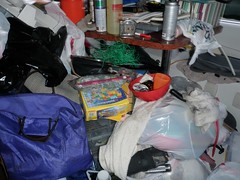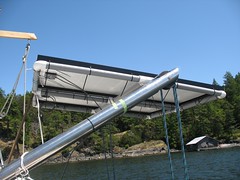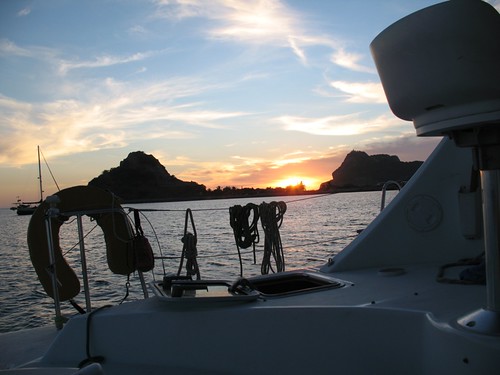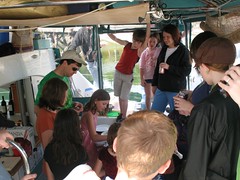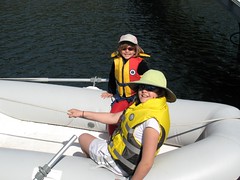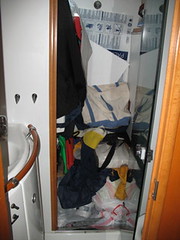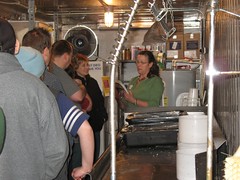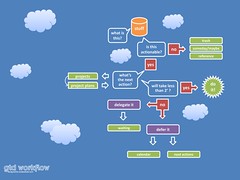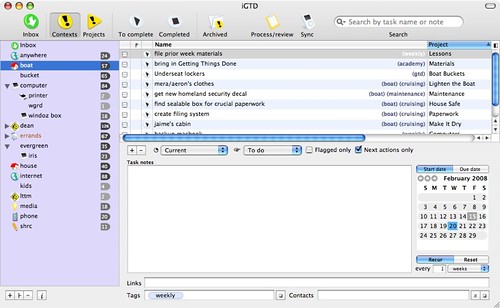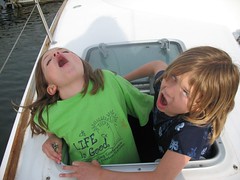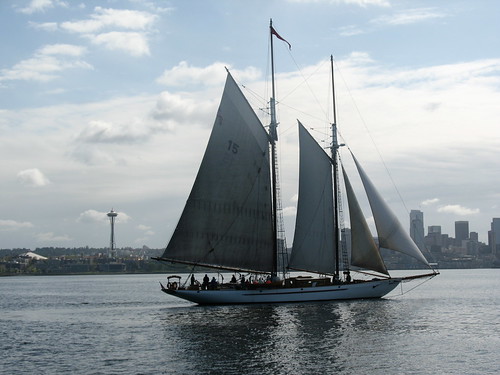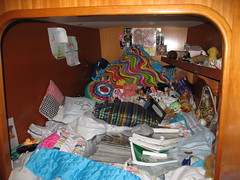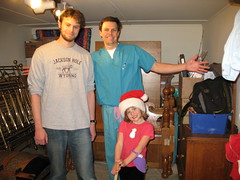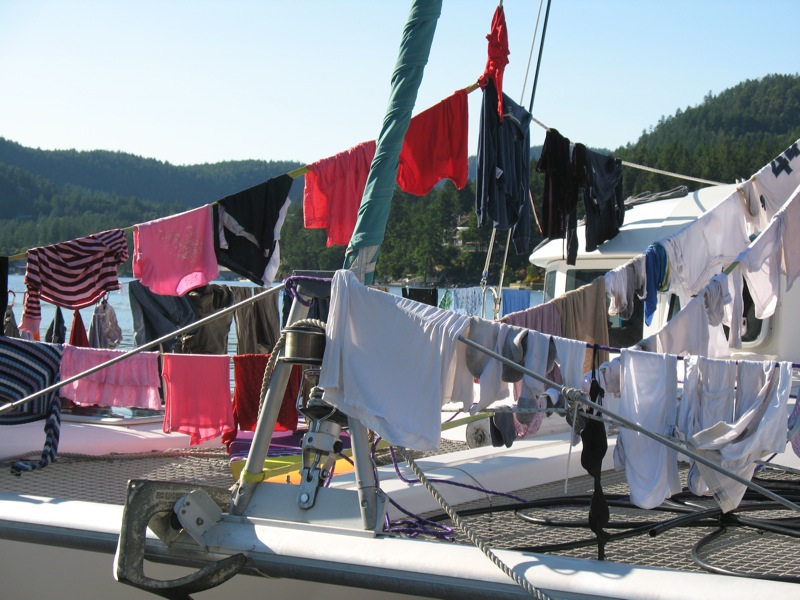 |
| White Trash Boating by toastfloats |
"It's not that I don't love them," I muse while shifting roughly a million pounds of stinking, moldy, food encrusted clothing from the hulls into the cockpit. "It's that I would love them more if they did the laundry."
My husband apparently agrees, "They're old enough. Make them."
I am properly incredulous, "Make them." Make them. Wow. That's simple. Make three girls aged 9, 12, and 14, do something smelly, tedious, and hard. Okay.
"You make them."
Proving that my daughters are not the only children on the boat, "No, you make them."
I glare at my husband, hands on hip. "I cooked, I cleaned out the refrigerator, AND…" and here is the triumphal feather in my cap, "I rebuilt the starboard head." Firmly and without any hesitation, I consign DrC to hell, "You Make Them." And with that, I metaphorically wash my hands of the dish towels, panties, and shorts and head below to play World of Goo.
The problem with laundry on a boat is that it's hard. It's laundry without a net. Actually, it's laundry without a washing machine, a dryer, or good quality, environmentally friendly soap. In fact, it's laundry without water since we start with nothing but salt water, a cranky water maker, and an attitude. The problem with laundry on our boat is that we have a lot of it.
I know people who put washing machines on their cruising sail boats. We call them weekenders. Real cruisers use their washing machines to store foulies or mangos or a replacement halyard. The chandleries sell little jokes called washing tumblers which are both too small and waste far too much water to provide a practical solution to the mountains of filthy clothing produced by three active girls and a pirate.
I, of course, am laundry-less. While cruising, I live in an pair of hi-tech REI shorts (panties built in) and a sports bra, both of which I can wash with a bit of dish soap in a coffee mug and dry by waving them at my husband in a tauntingly sexy fashion. I don't believe there is such a thing as a boat under 100 feet with a clothes drier. This is, of course, why safety lines were invented. It sure as hell wasn't to prevent you or your expensive boat gear from falling off the boat as we have repeatedly proven.
So. Washing on Don Quixote is an all day affair… at least. Sometimes several days. We pull out several gargantuan plastic buckets. Normal folk in the Real World buy these at WalMart to store things that they don't want but are afraid to throw away. They accumulate like drier lint in the back of closets and in garages and in attics. We fill the buckets about half full of water and a toxic Mexican laundry soap, then jam in every item of clothing we own, an indeterminant number of towels and several pillow cases.
Then we wait. There is a theory amongst the DQ clan that if we wait long enough, the laundry will wash itself. Sometimes, this works… as in the time that the laundry was taken over by a desperate colony of thirsty bees who sucked the water out. Then there was the time it sat long enough that the smell made us dump the entire lot into the ocean rather than touch it to retrieve our belongings.
However, mostly, the wait is for an hour or two and then the hard slogging work begins. Using a toilet bowl plunger or bare feet, we stomp the dirt out. It's like making wine the old fashioned way but without the production of palatable beverages. Then in three-man teams, we wring the sludge out using our hand crank Dynajet wringer. Load up some fresh water, repeat the stomp, repeat the wring. And again. And sometimes again because let's face it… we're filthy.
Drying involves clipping a carabiner to each and every item of clothing. We used to use clothes pins but a 25 knot breeze one evening reduced our underwear stock by roughly 70% and took out my only push-up bra so now we clip everything to the lines in a fashion that would withstand a hurricane. Several hours later, we pull the fresh, hand-washed, line-dried linens off the halyards and sheets, completely faded of all color and with the elastic blown to hell but with the bright smell of chemical lavender.
 |
| Laundry Girls by toastfloats |
Only a short while passes while I take on the challenge of moving little balls of electronic, physics challenged goo from one location to another on my laptop, but no sounds of war upstairs is promising. DrC pops his head down into the cabin, and says, "Let's move the boat. We'll go to Bahia El Coyote."
My eyebrows go up, "What about the laundry?"
The pirate smile starts to creep through his beard, eyes dancing he says, "I had an idea."
Twenty minutes later, we are steaming very slowly south to a new bay. Behind us, the dinghy is full of water, laundry, soap, and children, the mix gently agitating in our steady, bouncy wake. Sitting at the helm while my grinning husband drinks a beer at my side as the girls scream with laughter, I admit, "You're brilliant, you know."



